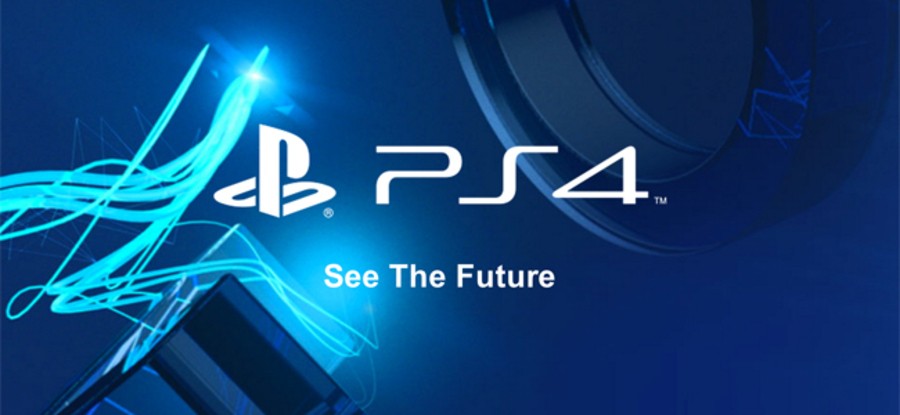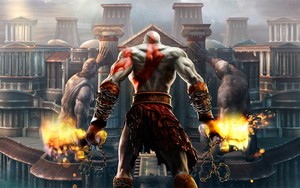
Sony’s commitment to the oft-discussed ten year life cycle is generally a positive thing. As a consumer, you can be fairly confident when you buy a new PlayStation product on launch day that it will be supported for a full decade at the very least. That’s reassuring – gaming is an expensive hobby, and no one wants to be lumbered with an obsolete piece of hardware before it’s even hit its stride. But while the platform holder’s dedication to legacy support is largely admirable, it must make sure that it gets its priorities right when navigating the transition to the PlayStation 4 later this year.

There’s absolutely no denying that the PlayStation 3 has a lot of life left in it. Despite approaching its seventh year on the market, the console still hasn’t hit the magical mainstream $199.99 price point in North America, meaning that it’s one discount away from a serious sales spike. That’ll likely come before Christmas, timed to capitalise on the release of big third-party titles such as Battlefield 4 and Grand Theft Auto V. With new bundles, a low price point, and a back catalogue brimming with cheap content, the system seems well positioned to round out its last few years on the market in style.
And that’s fine. Considering the PS3’s extraordinarily problematic launch, it’ll be a change for the system to print some cash rather than suck it up like an overpowered Dyson. But the real beauty is that Sony doesn’t really need to do that much at all. Other than keeping store shelves replenished, negotiating new bundles with third-party publishers, and paying for the odd television or magazine advertisement, the console should pretty much sell itself. However, what’s concerning us is that the platform holder appears to be committing itself to further first-party support, too.
Subscribe to Push Square on YouTube166k

Many of us assumed earlier in the year that the likes of The Last of Us and Beyond: Two Souls would represent the last of Sony’s major exclusive offerings for the PS3, but that’s looking increasingly unlikely by the day. Mounting speculation suggests that the manufacturer’s lining up a new Gran Turismo game, as well as a third entry in the LittleBigPlanet franchise for the current console. If the rumours are accurate, both titles could be poised to launch later this year alongside the system’s successor. But isn’t that taking legacy support a little too far?
Many will point to the success of God of War II as a counterargument. The second entry in Sony Santa Monica’s colossal mythological series launched on the PlayStation 2 in March 2007, some five months after the PS3 had hit store shelves in North America. The title went on to sell almost a million copies in its first month alone, an impressive performance for a title running on outdated hardware. But while the release profited greatly from the humongous install base of its parent platform, it also served as a reminder of the issues that the system’s successor faced at the time.

At the start of 2007, the PS3 was in a bad place. There was very little meaningful content on the horizon for the expensive console, and it was getting trounced on the hardware charts due to its extortionate price point. A release like God of War II could have given the system real substance, and perhaps even turned the console’s fortunes around earlier. It may not have moved as many discs, but it almost certainly would have pushed systems off store shelves, and perhaps even have stopped Sony from ceding such an advantage to Microsoft in the long run.
Sony can’t afford to tread a similar path with the PS4. While there’s still a big place for its current generation console on the market, it needs to ensure that the majority of its resources are being ploughed into the console’s successor – especially when it comes to enormous franchises such as Gran Turismo. As the biggest brand in the platform holder’s portfolio, a mainline entry in the simulation series would do wonders for the install base of its next generation console. It’s absolutely baffling to think that the company would pass up on such an enormous opportunity.

And it’s even more perplexing when you consider that Microsoft’s almost guaranteed to sprint out of the blocks with the next Xbox. It seems extremely unlikely that the Redmond-based manufacturer will be producing much more content for its current console, allowing it to focus all of its attention on building an install base for the system’s successor. Sony needs to be doing the same for its own impending platform, otherwise it risks gifting an enormous advantage to its closest competitor all over again.
Of course, we can’t be too critical until we know the full story. It’s perfectly possible that the next Gran Turismo could be a cross-platform release, which would certainly change the complexion of this article. Regardless, the message remains the same: Sony must handle the transition to the PS4 better than it did with the PS3. That doesn’t mean that the current generation console suddenly needs to become irrelevant, but the focus – particularly when it comes to key franchises – surely must be on its successor now.
Do you think that Sony should continue to produce big first-party titles for the PS3? How do you think that the company should manage the transition to the PS4? Let us know in the comments section below.





Comments 27
Let third parties continue to support the PS3 and have all first parties focus on the PS4. Although if Sony's statement is true, then all of their major FP studios are already toiling away on new titles or sequels.
With all of their FP studios working on games, as well as the laundry list of third party studios,the PS4 shouldn't get the "it has no games" complaints that the PS3 and Vita were/are so famous for. With that in mind, the PS4 is already looking like it will have a better first year than the Wii U (even though it's only 5 months old), PS3 and Vita.
They should keep producing titles? In a Bussiness point of view its a meh they will still getting a lot of profit for those games thanks to the huge PS3 userbase but then the PS4 will be lacking of support for its release the PS4 by now only has 19(Wikipedia's number might be wrong) games announced and only few of those are coming in launch and from that few some are just enhance ports of current generation games.
So please Sony don't let this one to be a launch fail is your time to shine after Microsoft mistakes the only thing that can make you fail at this point is yourself.
It's funny, as a consumer, I actually don't like Sony's commitment to legacy consoles. I couldn't be more frustrated to see the PSP doing well. And if I buy a PS4 at launch I will want to see the PS3 killed and buried.
It seems like it would be a better business decision too. Sure, make the PS3 cheaper and keep selling it. You'll get purchases from the people out there who have waited 7 years for a $100 PS3. But don't use any of your resources on it. You already have the money of the people that bought PS3. Now you want them to buy the PS4. Make them feel like their PS3 is obsolete. Honestly, who cares if they don't like it. They'll probably grumble all the way to the store and pick up a PS4. Reward early adopters with your attention.
@Squiggle55 Yeah, I kind feel the same way. I will be getting a PS4 and I would rather games came out for my new baby rather the kid that I'm trying to get to move out.
@Squiggle55 Really good points there, and I feel as though I agree. There IS part of me that's saying "to hell with the PS3, it's over, done. PS4 is everything now!" Although it seems a bit harsh to come out and say it.
@ShogunRok - I feel like that is what these last few articles have been saying with out saying.
I don't feel that way at all but I haven't had my PS3 as long as most of you.
@Splat I was in a similar situation with the PS2 - I was a very late adopter, and at that point I didn't give a damn about the PS3 which was set to launch within the next year and a half. Consoles are a strange business, especially if you enter a generation later than most.
I really don't understand Sony's strategy of generation transitions. Late adopters have nothing to complain about, they know full well that they're late to the party. And they suddenly have years and years of great games to play that are completely new to them. Don't spend a second of your time on the old console, reward the early adopters of the new one. I'd even like to see them go so far as to encourage and provide incentive for 3rd parties to transition as well.
Gran Turismo 6
Lightning Returns: FFXIII
Final Fantasy Versus XIII
The Last Guardian
Plus more...
They'll all be gracing the PS3 during this transition period, don't you think? It's like when the PS2 received some heavy hitters when it had to bow out of the spotlight for PS3. It received games like TR Legend, Okami, FF XII, Shadow of the Colossus, and gow 2.
Sony might want to clear out the backlog of unreleased PS3 projects and start the PS4 with a clean slate.
@ThreadShadow I think The Last Guardian and Final Fantasy Versus XIII are going to end up on PS4 now (thank goodness!), but all of those games barring perhaps Lightning Returns should be on PS4. Just like all of those PS2 games should have launched on PS3 when the system was literally gasping for good content.
Sony has a big enough first-party to really twist the knife in Microsoft with the launch of the PS4. But it looks like it's going to continue supporting the PS3 instead, which is... ridiculous, really.
Since I don't own a PS3 but intend to buy a PS4, I couldn't agree more with Sammybs opinion on the matter.
But still, if I'd own a PS3, I'd still want Sony to go full force on the PS4 asap.
Said it before and I'll say it again, the PS4 will hardly sell during the first 12-18 months as only the "hardcore" will buy it in that time. Same with the 360 successor. Sony supporting PS3 is guaranteed money unlike the PS4 which will take time taking off. Just look at how the Wii U and Vita are struggling. Even the 3DS was at first but that's now turned the corner. The PS3 still has a good two years at least left in it and will be supported during that time, perhaps even more so than the PS4 initially.
@TheRealBatman ok yeah try to have a few games but also try to focus a tiny bit more on the consoles. Then they Will have sucess😃
@rastamadeus The Wii U and Vita are struggling because they don't have enough games. The 3DS struggled until it got a bunch of games. Putting software on the PS3 will not encourage people to buy a PS4.
I think we're on the same page, just coming at it from different angles. I agree that there's a lot of life left in the PS3, though. I just don't think that Sony needs to support it with blockbuster franchises for it to keep selling.
One of the dumbest decisions is GT6 being on PS3. GT is Sony's best selling franchise what better game to try and sell PS4 early on?
@get2sammyb Agreed. But the not enough games problem will happen with PS4/720 though, just in a different way as the majority of the games will also be on PS3/360 so why would you justify spending £X on a new machine when it's on one you own? Because its slightly prettier? Because you can Like it on Facebook?
The PS4 will fare better as it has better first party series that sell than Microsoft which has only Halo and a so-bad-now-it's-genuinely-upsetting Rareware. Then again Nintendo has better first party series and they haven't helped the Wii U yet.
I just think that supporting the PS3 will be a Godsend for Sony as it will allow the PS4 to make a loss for a year or two. It's a rock and hard place situation though, the PS4 will fail (initially) without games but no-one seems to be confident enough to release games just for it - or 720 - as they know they won't sell for a good year or so. I hope I'm wrong and both go on to be successful (the Wii U too) as this industry needs all three firing on all cylinders but I don't see it happening until late 2015 at the earliest.
@Gamer83 As I've just said above its because it just won't sell enough. Are millions of people going to buy a PS4 just for another car game? One that is blatantly able to be on PS3 (so can't be that next gen) in a slightly less pretty version? It makes no sense for it to be on PS4 when it will sell like chocolate on the PS3.
I think it would move some consoles, a hell of a lot more than any other franchise would. Why even bother releasing a new console if the big games are just going to be on the last gen machine? inFamous: Second Son and Killzone: Shadow Fall might as well be PS3 games using the same logic.
What the PS4 needed was backwards compatibility. That would have made the transition that much easier and made supporting two platforms more seamless. That is one of the reasons why the iphone and ipad have been so successful. It all started with ipod touch and the same apps also worked on the iphone and every generation after that. Same thing happened with ipad, mostly all the iphone and ipod touch apps/games are compatible which gives consumers more reason to stick with Apple. With Playstation that is not the case. By bringing out each new console under a totally different platform, they're alienating past consumers and telling them to just jump on over. Personally backwards compatibilty isn't that big of a deal to me, but it could be for a lot of potential consumers. Hopefully Sony's streaming service turns out to be a hit.
@rastamadeus I agree with you on this one Supporting the PS3 too ensures Sony still has Money rolling in while sales for Ps4 start picking up. I dont understand some other viewpoints tho. It sounds as tho they want Sony to become M$? Remember the Xbox. M$ big black console that had a premature death? Few years after launch M$ launch the 360 early and cease support for its previous console. Its a shame for the Xbox as it was starting to hit its stride. Also its a shame for consumers as they suddenly have no choice but to upgrade and the consoles resale value plummets.
I applaud Sony for thier continued support of legacy hardware.
@Gamer83 Because, with respect to those two series, they aren't system sellers. They're both there like the girl on your arm, to look pretty. Plus they're there for the Sony hardcore who'll buy it no matter what. Killzone especially, sorry Sammy, looks dire so far. Visually stunning but boring as sin (hope to be proven wrong when more is shown). If Sony put GT on the PS4 it doesn't sell as car nuts aren't going to pay £3-400+ for the console and the game, but a game on a console they own or can pick up for under £150?
Whats the difference between "Opinion" and "Talking Point"?
Firstly, theres no such thing as a perfect transition, theres just hope for the best. A lot of people will be mad whatever you do, Sony just needs to make money the best way they think they can. While a lot of people are upset at the WiiUs lack of 1st party games, people have also been upset at the lack of Wii support over the past couple of years (while the 3DS catalog continues to grow). Whether or not PS4s fly off the shelves has to do w/ PS4 price and PS4 games, continued PS3 support is a plus for the brand name.
I dont get why anybody buys an Xbox, its just lost on me. DRM and always on may do them in. See PSPgo.
Well my ps3 can't read disc's anymore. Great transition ,if I have to buy a new ps3 I won't get a ps4 until its dirt cheap. These things don't last 4 years .jesus
@MadchesterManc Whatever Microsoft did transitioning from the xbox to the 360 seemed to work pretty well for them, didn't it? And in turn they rewarded their most loyal customers, the early adopters, through their successful generation transition. The people that sat on their hands for 6 or 7 years waiting to buy a ps3 do not deserve new games made for them when the next generation is released, and they also don't need new games — they have 6 or 7 years worth of great games to work on. Sony will of course keep making money selling ps3s and old games for a long while now, but they should be spending all of their money on games for the ps4 and advertising for the ps4.
@get2sammyb Though I understand where you are coming from, the problem with moving blockbusters to the PS4 is that the wont sell enough for a long time until enough people have bought the system.
If I was a developer, I would be excited about the PS4 tech, but very nervous about trying to release a PS4 only games in the first year at lest. Over 70 million PS3s, 150ish if you combine with XBox. It is sheer economics for developers to at least release versions on both systems for a while to cover costs.
From Sony's perspective, they are now making good money on the PS3, recouping costs and funding the PS4. They need the cash as well. Transition periods are tough.
@Ginkgo I agree. The only angle that still releasing a blockbuster on ps3 makes sense from is from the 3rd party developer's perspective. I would not fault a 3rd party for making that decision at all. But Sony shouldn't be doing it. And they should still provide incentive to try and get those 3rd parties to reward their early adopters of the ps4 too.
@get2sammyb
While I disagree with your anti-PS3 stance...(kidding!), I completely agree with your "games sell systems" stance.
Release on PS3:
1. There is Sony's precedent for big titles released at the end of a consoles life.
2. Established install base of current gen console.
Also there is that whole "addition to the family" statement regarding the PS4. Granted is wasn't made by a really top ranking Sony exec, but it seems like a statement that is all about caution. Big support for PS3 still, while versions for PS4 will also be made-kinda thing going on there. Kepping the PS3 and PS4 side by side in the publics mind. This game is available on the PlayStation "family" of consoles.
Release on PS4:
1. Games sell systems, systems don't sell systems. PS4 would need as many heavy hitters as possible to propel it forward.
It has always boggled my mind, (though I can understand it from peoples explanations on this site, "how long to wait for profits", basically), how third-parties will create a self-fulfilling prophecy. They won't release a game for the system, because it's too risky, so they sit back and wait for the console to improve. How can it improve without your game? And when it doesn't they shout out "see, we were right not to release our game for your system because it failed!". Well, yes, it failed because no games were released for it. People buy games, not systems, so to speak. And what if every third-party made the same choice-to wait and see? Game development-you're doing it wrong!!
Personally though, since I most likely will not be buying a PS4, I don't want them to release the PS3 games I've been anticipating, exclusively on the PS4.
And isn't there LBP 3 in development for PS3 too?
Show Comments
Leave A Comment
Hold on there, you need to login to post a comment...